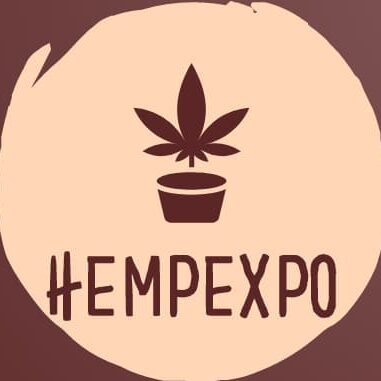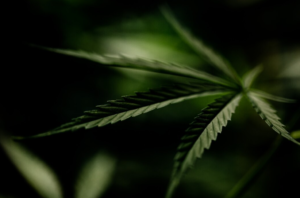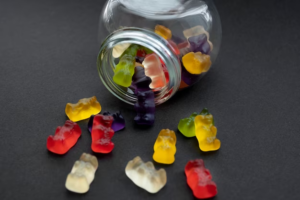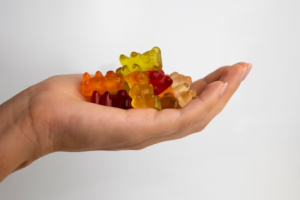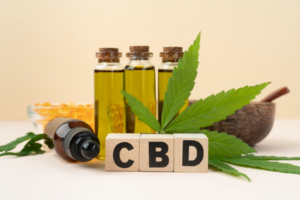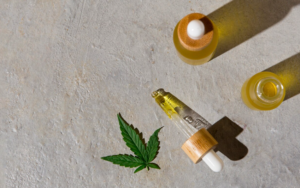
Cannabidiol (CBD) has witnessed a meteoric rise in its popularity in recent times, transcending the boundaries of health enthusiasts and permeating mainstream health and wellness discussions. At the same time, alcohol consumption remains a social norm in various cultures. The coexistence of these two substances in the lives of many begs the question: How do they interact, and what are the implications of their combined usage?
Evolution of CBD in Society
Before diving into CBD’s intricate relationship with alcohol, understanding its origins and rise in society is paramount. Once a contentious subject, CBD has, over the years, been separated from its psychoactive counterpart, THC. This differentiation is vital because, while both belong to the cannabis plant family, their effects on the human body and mind are vastly different.
CBD, primarily derived from hemp plants, has been utilized in various traditional cultures for centuries. The modern resurgence of CBD can be attributed to its reported benefits in managing anxiety, chronic pain, sleep disorders, and even severe conditions like epilepsy.
Alcohol Through the Ages
Alcohol has an even deeper historical context. From the ancient Egyptians and Greeks to modern societies, alcohol has played a dual role: a recreational elixir and, at times, a medicinal remedy. Festivities, rituals, social norms – alcohol fits snugly into the fabric of many civilizations. But its extensive usage is not without ramifications. Alcohol-related problems, including addiction, liver diseases, and impaired cognitive functions, have been prevalent.
CBD and Alcohol: The Physiological Interface
Cannabidiol (CBD) and alcohol, while vastly different in origin and primary use, have complex interactions within the human body. When consumed separately, each has distinct effects on various physiological processes. However, when taken in tandem, the dynamics of their interaction become even more intricate.
CBD: A Brief Recap
CBD, primarily sourced from the hemp variety of the cannabis plant, interacts with the body’s endocannabinoid system (ECS). The ECS, a complex cell-signaling system, plays a crucial role in regulating functions like mood, pain, sleep, and appetite. CBD doesn’t bind directly to ECS receptors but appears to encourage the production of endocannabinoids and inhibit their breakdown, amplifying the system’s effects.
Alcohol: Beyond the Buzz
Alcohol, on ingestion, is rapidly absorbed into the bloodstream, primarily from the stomach and small intestine. Its sedative properties primarily affect the central nervous system (CNS), slowing down brain function and neural activity. It also influences various neurotransmitters, which can lead to feelings of relaxation, lowered inhibitions, and altered judgment.
The Confluence of CBD and Alcohol
When CBD and alcohol are consumed together, several physiological effects might converge
- Enhanced Sedation: Both CBD and alcohol possess sedative properties. Alcohol is known to depress CNS activity, while CBD can promote relaxation and reduce anxiety. Combined, they might significantly amplify feelings of drowsiness or sedation. This can lead to a deeper sense of relaxation, but can also increase the risk of over-sedation, impacting motor skills and decision-making.
- Potential Neuroprotection: Some studies suggest that CBD may have neuroprotective properties. While alcohol, especially when consumed in large amounts, can be neurotoxic, leading to brain cell death, the presence of CBD might mitigate some of these harmful effects. However, it’s essential to note that more research is needed to substantiate these claims.
- Alteration in Blood Alcohol Content (BAC): Preliminary research has indicated that CBD might affect the BAC levels in the body. One study noted that participants who consumed CBD with alcohol had lower BAC levels than those who consumed alcohol alone. While this might seem promising, the implications of this interaction remain unclear.
- Potential for Reduced Alcohol Cravings: There’s emerging evidence to suggest that CBD might help reduce the urge to consume alcohol, potentially aiding those struggling with alcohol use disorders. While the exact mechanisms are yet to be fully understood, it’s believed that CBD’s interaction with the ECS might play a role.
- Liver Function and Health: Both alcohol and CBD undergo metabolism in the liver. Chronic excessive alcohol consumption can lead to liver damage, while the long-term effects of CBD on the liver remain under investigation. Their combined impact on liver health needs further research.
What to Know When Combining CBD and Alcohol
- Safety First: Mixing CBD and alcohol can amplify sedative effects; moderation is imperative.
- Legal Implications: Ensure you’re aware of local regulations regarding CBD consumption and sales.
- Individual Responses Vary: While one individual might feel relaxed with the combination, another could feel overwhelmingly drowsy.
- Long-term Impacts: The lasting effects of the CBD-alcohol combo on liver and cognitive functions are not fully understood.
- Purity Matters: Always choose high-quality, tested CBD products.
- Not a Cure-All: Neither CBD nor alcohol should be seen as a blanket solution for health issues.
- Possible Hangover Relief: Anecdotal evidence suggests CBD might ease hangover symptoms.
- Dependency Issues: Prolonged combined use might lead to dependency; maintain breaks and monitor consumption.
- Stay Hydrated: Both alcohol and CBD can be dehydrating. Drink plenty of water.
- Consult Healthcare Professionals: Before regularly mixing CBD and alcohol, consult a doctor or healthcare expert.
Comparative Table: Potential Positive and Negative Effects of CBD and Alcohol
| Aspect | CBD | Alcohol |
| Stress Relief | Known to reduce anxiety and stress. | Temporary relief but can increase anxiety long-term. |
| Pain Management | Demonstrates potential in pain relief. | Provides short-term pain relief, but excessive use might increase pain sensitivity. |
| Sleep Quality | Can improve sleep in some individuals. | Can disrupt REM sleep, leading to poor-quality rest. |
| Digestive Health | Few reports of upset stomach or diarrhea. | Can lead to gastrointestinal issues and indigestion. |
| Mood Alterations | Typically calming without mood swings. | Can induce mood swings and emotional instability. |
| Long-term Health | Research still ongoing; few known severe side effects. | Prolonged excessive consumption can lead to numerous health issues. |
The Cultural Influence of CBD and Alcohol
As society evolves so does its relationship with substances. In recent decades, the cultural narrative around CBD has shifted dramatically. Previously stigmatized due to its association with marijuana and intoxication, CBD now enjoys a position of interest and respect in the health and wellness domain. Its rise is attributed to its potential therapeutic benefits, celebrity endorsements, and changing legal landscapes.
Alcohol, on the other hand, has been embedded in human culture for millennia. From ancient rituals to modern celebrations, it has been a constant presence. While its social acceptance remains undiminished, growing awareness about its potential harms has brought about a more balanced perspective.
The fusion of CBD and alcohol in modern culture is a testament to society’s evolving tastes and priorities. As wellness becomes central to the modern lifestyle, the blend of relaxation (from alcohol) and therapeutic effects (from CBD) symbolizes the current zeitgeist
Environmental and Economic Impacts of CBD and Alcohol Production
While much is discussed on the physiological effects of CBD and alcohol, their production’s environmental and economic implications are worth noting.
The CBD industry, closely tied to hemp cultivation, has been praised for its relatively low environmental footprint. Hemp plants require minimal pesticides and can be used in crop rotation to improve soil health. Additionally, every part of the plant is usable, ensuring minimal waste.
The alcohol industry, conversely, presents a mixed bag. While grape cultivation for wines can be sustainable, the water-intensive nature of beer production has environmentalists concerned. Economically, the alcohol industry is a powerhouse, providing jobs and contributing significantly to global GDP. The CBD industry, although nascent, is catching up, with projections suggesting a multi-billion-dollar market size in the coming years.
Both industries have socio-economic challenges, from ensuring fair labor practices to responsible marketing. As consumers, understanding this broader impact allows for more informed choices.

Benefits of Combining CBD and Alcohol
Recent studies have explored the possibility of CBD being used as a protective agent against the damages caused by excessive alcohol consumption. One study found that CBD could prevent cell death in the liver caused by alcohol. Another research noted the potential of CBD in reducing alcohol-induced neurodegeneration by almost 50%.
Myths and Misconceptions
A prevalent myth is that taking CBD with alcohol can get you “extra high”. This is misleading. While combining both might amplify sedative effects, it does not heighten intoxication.
The Societal Impacts and Perceptions of CBD and Alcohol
In the annals of human history, substances that alter perception, mood, or consciousness have always held a unique place. They’ve been used for spiritual, medicinal, recreational, and social reasons. CBD and alcohol, though different in many respects, share this common thread of influencing society’s fabric. Their societal impacts and perceptions intertwine with culture, economy, and health.
A Historical Perspective
Historically, alcohol has held ritualistic importance in many cultures. From the ancient Greeks, who worshiped Dionysus, the god of wine, to the indigenous tribes that used fermented beverages in ceremonies, alcohol has been celebrated, revered, and integrated into societies.
In contrast, the history of cannabis and by extension, CBD, is a tapestry of medicinal, recreational, and sometimes, taboo uses. Ancient texts from China and Egypt highlight cannabis’s therapeutic applications, while its recreational use flourished in regions like Central Asia and the Indian subcontinent.
The Modern Landscape
In contemporary society, alcohol is largely accepted and is an integral part of social gatherings, celebrations, and even daily relaxation routines for many. It’s a multi-billion dollar industry, supporting millions of jobs worldwide.
CBD, having shed much of its previously controversial image, is emerging as a wellness juggernaut. As of the early 21st century, its medicinal benefits are being recognized, leading to its decriminalization and commercialization in many parts of the world.
Economic Implications
Alcohol’s economic impact is profound. From breweries to wineries, bars to liquor stores, it supports a vast supply chain. Governments also benefit through taxation, which sometimes is reinvested in public health campaigns to combat alcohol misuse.
The CBD industry, although younger, is witnessing exponential growth. Predictions suggest it could rival the economic influence of the alcohol industry in the coming decades, given its diverse applications in health, beauty, and therapeutic sectors.
Health and Wellness Narratives
While alcohol’s relaxing and euphoric effects are well-documented, its overconsumption poses significant health risks, such as addiction, liver diseases, and increased accident risks. This duality has led to mixed perceptions, with public health initiatives often focusing on moderation.
CBD, on the other hand, is carving a niche primarily in the wellness domain. With potential benefits ranging from anxiety relief to inflammation reduction, its health-centric narrative is strong. However, like all substances, it’s not without potential side effects, and long-term effects remain a subject of research.
Conclusion
While the current landscape of CBD and alcohol interaction is filled with uncertainties, one thing remains clear: moderation is key. An informed, balanced approach, coupled with medical guidance, is the safest bet for those at the crossroads of CBD and alcohol consumption.
FAQs
1. How long should I wait between consuming CBD and alcohol?
This varies for individuals. As a general rule, waiting a few hours in between is suggested.
2. Are there any benefits to taking CBD after a night of heavy drinking?
Some anecdotal evidence suggests CBD can help with hangover symptoms. However, scientific backing is limited.
3. Is it safe to use CBD products to counter alcohol addiction?
While preliminary findings are promising, relying solely on CBD for alcohol addiction treatment is not advisable. Comprehensive therapy and medical guidance are essential.
